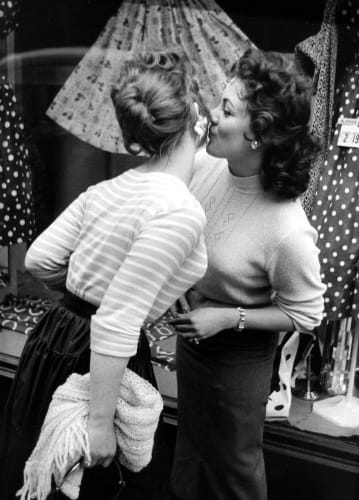Thurston "Godfrey" Hopkins was born in South London in 1913, and was initially trained as an illustrator at Brighton College of Art. However, he soon figured out "the camera paid better than the brush" and began working full time as a photo journalist. In 1940, Hopkins joined the RAF Photographic Unit and served in Italy and the Middle East, wherein he used the lightweight 35mm Leica to capture the war and continued to photograph European life after the event.
Hopkins spent most of his career working for Picture Post, and in 1950 he began to document the everyday life of post-war Britain, with exposés on everything from The Cats of London (1951) to Life in Liverpool (1956). Unlike other photographers, Hopkins firmly believed in the importance of a strong rapport between the writer and photographer. Hopkins himself has said, "I take the rather unpopular view -- among photographers -- that words and pictures need one another." In the book "Thurston Hopkins", Robert Muller describes Hopkins as being "quietly sardonic, instinctively curious and unfashionably courteous".
After Picture Post folded, Hopkins ran an advertising studio in Chiswick, West London for a decade. His photograph "La Dolce Vita" (featuring a limousine driver accompanied by a poodle) became a highly popularized postcard, poster, and calendar image. Thurston Hopkins eventually returned to painting, his first medium, and settled into early retirement in Seaford, East Sussex with his wife, Grace Robertson, in the 1980s. The exhibit "After Dark" celebrated his nocturnal images for his 80th birthday and Getty Images presented a major retrospective for Thurston's 90th. Hopkins passed away in 2014 at the age of 101.
